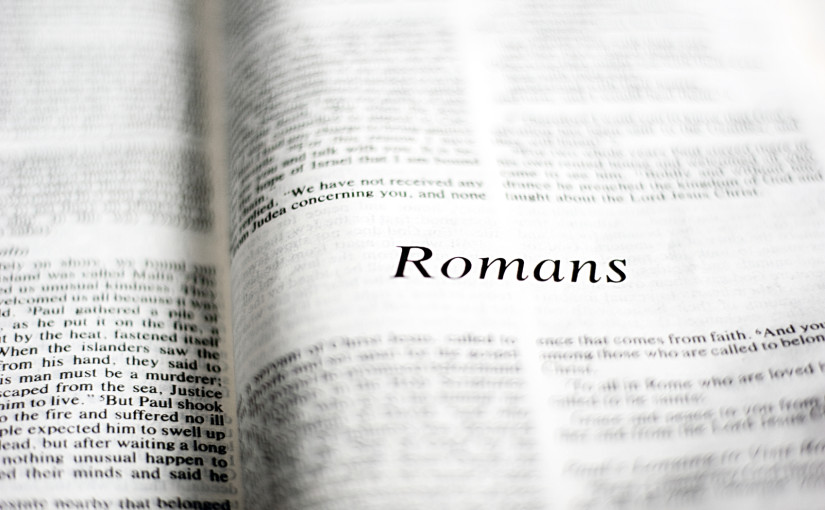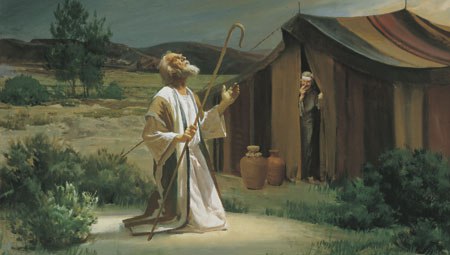Previously, in Romans: Paul is halfway through an expose of bad religion, particularly a form of law adherence that in his experience, only leads to status comparison, arguments, and death.
Romans 7:13-25
13 Did what is good, then, bring death to me? By no means! It was sin, working death in me through what is good, in order that sin might be shown to be sin, and through the commandment might become sinful beyond measure.
14 For we know that the law is spiritual; but I am of the flesh, sold into slavery under sin. 15 I do not understand my own actions. For I do not do what I want, but I do the very thing I hate. 16 Now if I do what I do not want, I agree that the law is good. 17 But in fact it is no longer I that do it, but sin that dwells within me. 18 For I know that nothing good dwells within me, that is, in my flesh. I can will what is right, but I cannot do it. 19 For I do not do the good I want, but the evil I do not want is what I do. 20 Now if I do what I do not want, it is no longer I that do it, but sin that dwells within me.
21 So I find it to be a law that when I want to do what is good, evil lies close at hand. 22 For I delight in the law of God in my inmost self, 23 but I see in my members another law at war with the law of my mind, making me captive to the law of sin that dwells in my members. 24 Wretched man that I am! Who will rescue me from this body of death? 25 Thanks be to God through Jesus Christ our Lord!
So then, with my mind I am a slave to the law of God, but with my flesh I am a slave to the law of sin.

Points of Interest:
- ‘sin, working death in me through what is good’ – Destructive sin and at-least-then-beautiful words of God teamed up to steer Paul and us all toward a common but negative human impulse – using religion for status driven self-justification.
- ‘I am of the flesh, sold into slavery under sin’ – Some traditions have taken the change to the present tense to mean that Paul is talking about his present experience now as a follower of Jesus, that despite all his experience with Jesus, he’s frustrated by how compulsive his misbehavior is. One prominent fourth century theologian (maybe the first to think this way) was Augustine of Hippo, who long before Freud, read the Bible through his shame over his youthful problems with sexual self-control and womanizing. Much later, German reformer Martin Luther would read the text this way as well.To many of us this doesn’t make sense of everything Paul’s just said in Romans, that the follower of Jesus has been rescued from sin and death by Jesus and is now exploring that new experience of union with Jesus’ new life. Instead, increasing numbers of Bible readers see this section as a “speech-in-character”, a common device in ancient rhetoric of dramatizing the experience of other people in the first person. Under these terms, Paul has moved from talking about his own experience, and all Jewish people’s past experience with the law, and is now focused on the legalists who are still trying to use the Hebrew law to justify themselves and rank-order other churchgoers.
- ‘I do not do what I want, but I do the very thing I hate.’ – Even if it’s not where Paul was going, this paragraph continues to provide tremendous empathy for those of us who find our willpower too weak to control our impulses. This is part of the experience of sin, to be divided and to continually move in the direction that doesn’t serve us.
- ‘For I delight in the law of God in my inmost self.’ – Perhaps my own first-person experience can illustrate. As a university student around age 20, I was relatively new to enthusiastic faith in Jesus and in an intensely devout season of life. I thought it was important to God’s law for me that I didn’t drink or have sex, two activities that occupied a fair amount of the free time of many of my peers. So I finished college as a tee-totaling virgin. That “law” wasn’t a problem. In itself, this served my studies, my development, and my future self as well. Go young me! But there was “another law at work, making me captive.” This law of mine led to smugness, confidence that I was better than my peers. That judgment, brought about from my sin, separated me from them. It also meant that my religious focus was more trained on what I was not up to than on experiencing life from Jesus. I was becoming a more critical, less flexible, less empathetic person. I was growing cockier and narrower in my thinking about life in general, and my life in particular. And none of that was leading to life. This is my version of sin creating a base camp inside of religious law, and leading to death. It’s possible to think you’re a slave to God, and even have that be partly true, but actually be a slave to what’s off in us, to sin.
- ‘thanks be to God through Jesus Christ our Lord’ – Jesus as Caesar, Jesus as Master, Jesus as Boss – however we want to contextualize Paul’s political phrase for Jesus being in charge – leads somewhere else. In Romans 8, we’ll get to spend five days exploring that beautiful territory.
Taking It Home:
For you – Have you had your own experience of religion that leads you away from God? Or have you seen this in others and been wary of too much God or Jesus as a result? Either way, thank Jesus that his plan for your life is not smugness or hypocrisy. Invite Jesus to consume your whole mind, your whole attitude, and your whole life with devotion, grace, and connection to Jesus that yield life, for you and others.
For your 6 – Perhaps some of your 6 have had their own taste of bad religion, either through personal experience or through witnessing it in others. Pray that these experiences wouldn’t steer them away from the love and kindness and power of Jesus.










